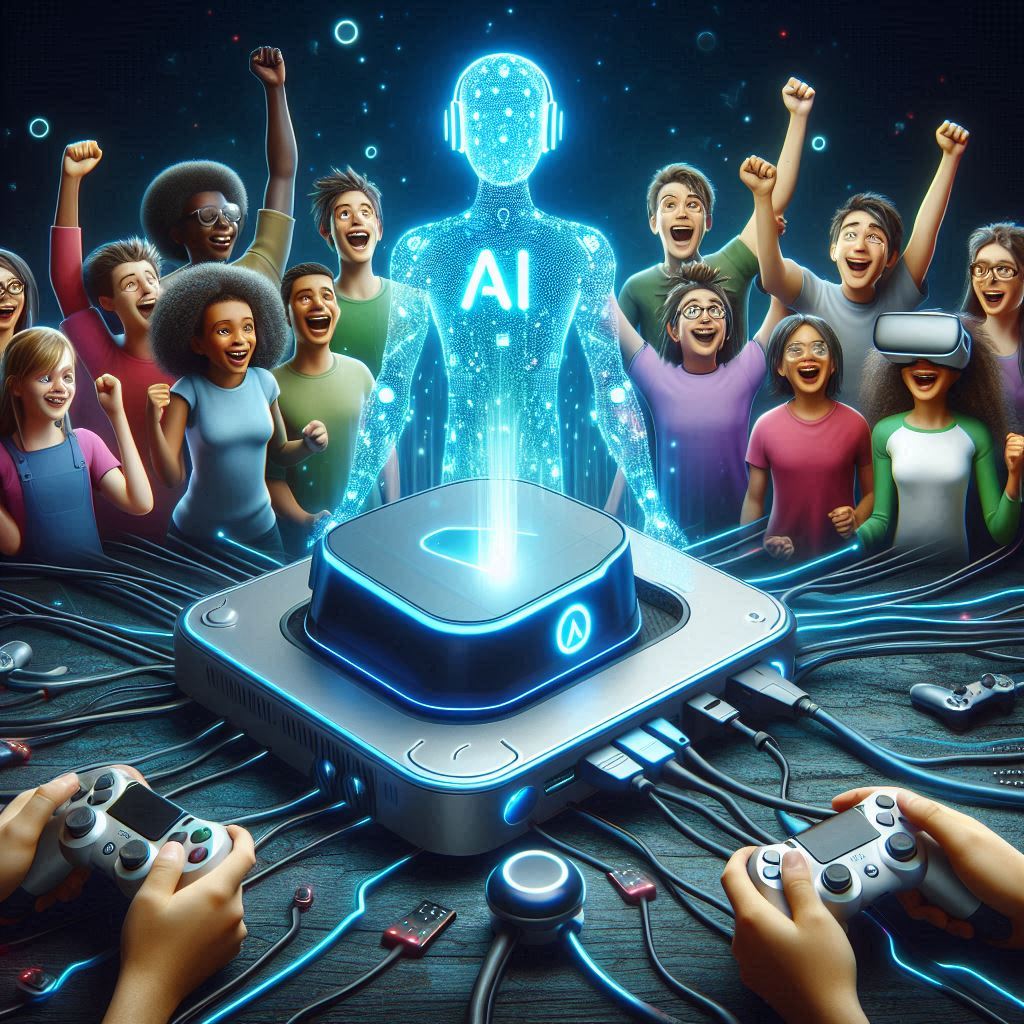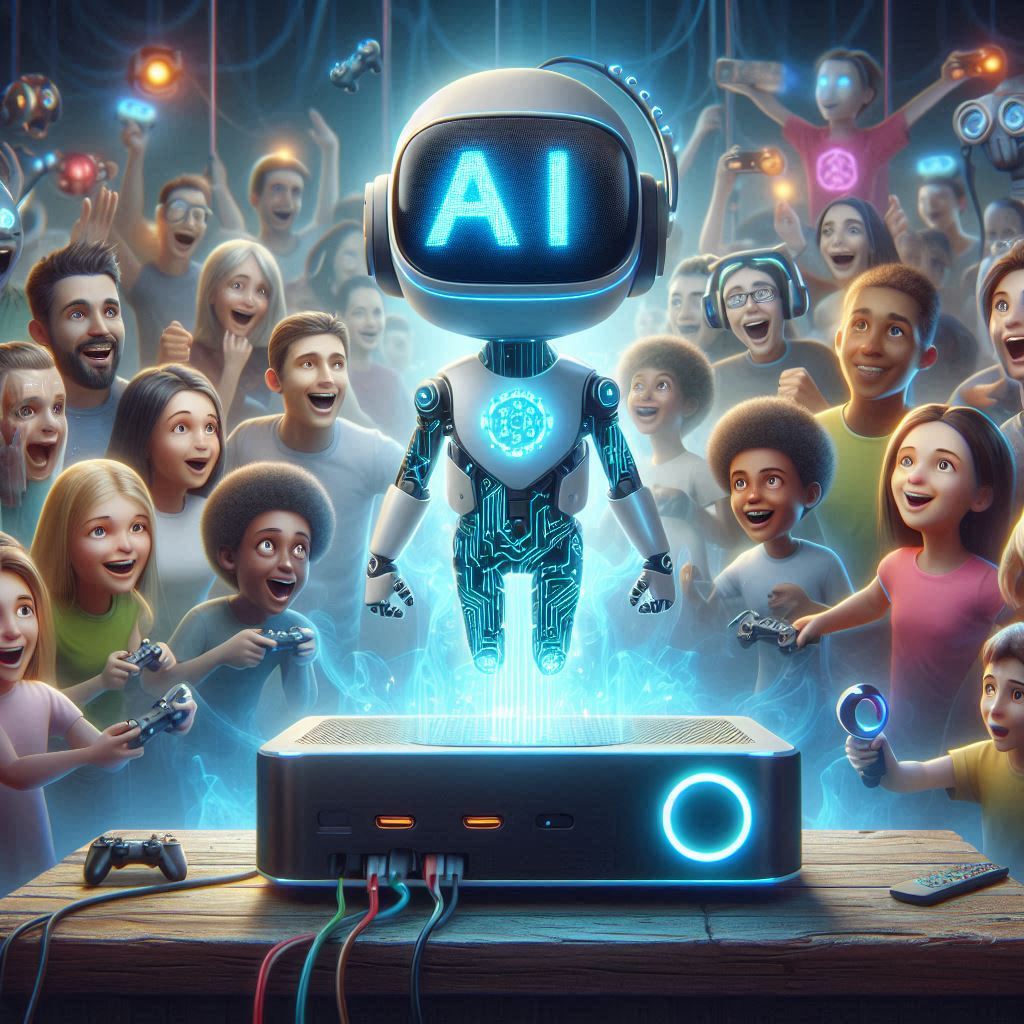Frequently Asked Questions (FAQs) About AI in Gaming
Introduction
- Importance of AI in shaping modern gaming experiences.
- Addressing common questions and concerns regarding AI’s role in game development and gameplay.
1. What is AI’s role in modern gaming?
AI plays a pivotal role in modern gaming by enhancing gameplay experiences, streamlining development processes, and enabling dynamic interactions between players and virtual environments. From intelligent NPCs to procedural content generation, AI technologies contribute to creating immersive and engaging gaming experiences that adapt to player actions and preferences.
2. How does AI enhance gameplay experiences in video games?
AI enhances gameplay by introducing intelligent non-player characters (NPCs) and opponents that behave realistically and adapt to player strategies. This dynamic interaction enhances immersion and challenges players to strategize and react in real-time. AI-driven gameplay mechanics also personalize experiences by adjusting difficulty levels, providing tailored challenges based on individual player skills.
3. What are some examples of AI technologies used in gaming?
Examples of AI technologies in gaming include:
- Adaptive AI: Adjusts game difficulty based on player performance, ensuring a challenging yet fair experience.
- Procedural Content Generation: Creates vast, dynamic game worlds and quests based on algorithms, enhancing replayability.
- Behavior Prediction: Anticipates player actions to enhance AI-driven NPC behaviors and storyline progression.
- AI-driven Game Design Tools: Automates tasks like asset creation, testing, and level design, accelerating game development cycles.
4. How does AI contribute to game development processes?
AI streamlines game development by automating repetitive tasks such as bug detection, testing, and content creation. Tools powered by AI algorithms enable developers to focus more on creative aspects of game design, iterate faster, and reduce development costs. AI’s ability to generate and analyze data also informs decision-making in game design, ensuring that new features align with player preferences and market trends.
5. What are the ethical considerations of using AI in gaming?
Ethical considerations of AI in gaming include:
- Player Privacy: Collection and use of player data for AI-driven personalization, requiring transparency and consent.
- Bias and Fairness: Ensuring AI algorithms do not reinforce stereotypes or discriminate based on race, gender, or other factors.
- Manipulative Design: Potential for AI-driven games to manipulate player emotions or behaviors through tailored experiences.
- Regulatory Compliance: Adhering to data protection regulations and ethical guidelines to safeguard player rights and ensure responsible use of AI technologies.
6. How does AI impact game design and creativity?
AI’s impact on game design can enhance creativity by automating mundane tasks and offering new tools for innovative gameplay mechanics. However, over-reliance on AI-generated content or automated features may limit creative freedom and diversity in game design. Balancing AI-driven efficiencies with human creativity and intuition is crucial to maintaining the artistic integrity and uniqueness of gaming experiences.
7. What are the challenges of integrating AI into gaming?
Challenges of integrating AI into gaming include:
- Technical Complexity: Requires specialized knowledge and resources for AI implementation and optimization.
- Development Costs: Initial investment in AI technologies and expertise may be prohibitive for smaller studios or indie developers.
- User Acceptance: Resistance from traditional gamers to AI-driven changes that alter familiar gameplay mechanics or dynamics.
- Security Risks: Vulnerabilities in AI systems may pose risks to player data security and privacy if not properly managed and secured.
8. How can AI contribute to the future of gaming?
AI’s future in gaming holds promise for:
- Enhanced Realism: Advancements in AI technologies will create more lifelike NPCs, environments, and interactive storytelling.
- Personalized Experiences: AI-driven customization will tailor gameplay to individual player preferences and behaviors.
- Innovative Gameplay: New genres and mechanics will emerge from AI’s ability to simulate complex systems and behaviors.
- Accessibility: AI-powered features may improve accessibility for players with disabilities, enhancing inclusivity in gaming communities.
Conclusion
AI’s integration into gaming represents a transformative shift that enhances gameplay experiences, accelerates development processes, and opens new creative possibilities for developers. While AI offers numerous benefits, it also poses ethical, technical, and creative challenges that require careful consideration and responsible implementation. By addressing common questions and concerns, this FAQ aims to provide insights into AI’s role in shaping the future of interactive entertainment and its implications for players, developers, and the gaming industry as a whole.
This FAQ section provides comprehensive answers to common questions about AI in gaming, covering its applications, impact, ethical considerations, challenges, and future trends. Each question is addressed with clarity and links to relevant resources for further exploration. Let me know if you need further adjustments or additions!

